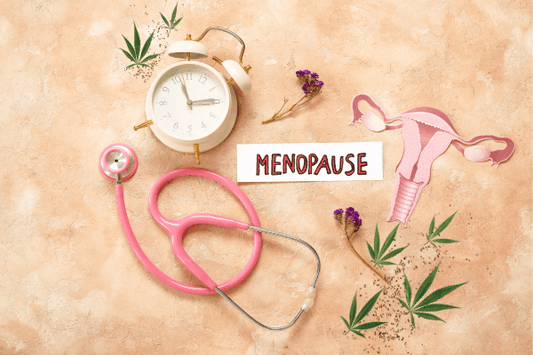
Cannabis Strains as Natural Remedies for Managing ADHD: Exploring the Potential
Featured image from Getty Images Signature
Hello there, fantastic Moms! Set that constantly beeping phone to silent, take a calming deep breath, and let’s have a heart-to-heart about something a bit unconventional. Roll up your proverbial sleeves and make yourself comfortable because today, we’re discussing cannabis and ADHD. Yes, you heard that right—cannabis! In our ever-evolving quest for wisdom and clarity, the rather surprising and intriguing words “cannabis strains” and “natural remedies” have wiggled onto our radar, sparking a fascinating discussion about this captivating and sometimes misunderstood plant.
Understanding ADHD and Its Manifestations
Let’s start with a little refresher on the ABCs of ADHD, shall we? Studies by the National Institute of Mental Health and the American Psychiatric Association classify ADHD as a neurodevelopmental disorder, typically surfacing in childhood. But ADHD doesn't just disappear after the school years—it often follows individuals well into adulthood. This condition brings three core symptoms to the table: inattention, hyperactivity, and impulsivity. Each can pose challenges on its own, but together, they create quite the whirlwind. If you’ve ever felt like you’re balancing too many things at once, rest assured, you're not alone. However, there are ways to manage ADHD effectively.
How the Endocannabinoid System Ties into ADHD
Now, let’s delve into a little bit of science. Meet the Endocannabinoid System (ECS)—our body's built-in regulatory network that influences mood, focus, and emotional balance. Think of it as your body's internal support system, working behind the scenes to keep things running smoothly. Interestingly, researchers have discovered that the ECS plays a key role in controlling behavior and attention—both of which are central to ADHD. This connection raises an intriguing possibility: could cannabinoids, the active compounds in cannabis, offer support for ADHD symptoms?
Examining Cannabis Strains in ADHD Management
The Role of Cannabinoids and Terpenes
Before we go any further, let’s define some key terms. When people think of cannabis, they often think of THC—the compound responsible for that well-known euphoric high. However, cannabis also contains CBD, a non-intoxicating compound known for its calming and anti-inflammatory benefits. These properties may be particularly useful for soothing hyperactivity and impulsivity. Alongside cannabinoids, cannabis also contains terpenes, which are aromatic compounds that contribute to cannabis’ effects. For example, the terpene pinene is associated with increasing focus, making it an interesting factor in ADHD symptom management.
What Does the Science Say?
While there are countless personal accounts of cannabis providing relief for ADHD symptoms, the scientific community is still catching up. A small-scale study found that adults using cannabis reported improvements in certain ADHD symptoms, but comprehensive clinical research is still needed. Without large-scale studies, it’s difficult to establish firm medical guidelines for cannabis use in ADHD treatment.
Potential Benefits and Risks of Cannabis for ADHD
Potential Benefits
Some individuals with ADHD report that cannabis helps them feel more focused, calm, and in control. For those who struggle with traditional ADHD medications and their side effects, cannabis presents an alternative worth exploring. However, personal experiences vary widely, and what works for one person may not work for another.
Risks and Considerations
While cannabis has potential benefits, it's crucial to consider possible drawbacks. Using cannabis, particularly THC-heavy strains, may lead to cognitive impairment, dependency issues, or even heightened anxiety in some individuals. Additionally, legal restrictions vary significantly depending on location. Before experimenting with cannabis for ADHD, it’s essential to consult a healthcare professional to weigh risks and benefits based on individual health needs.
Alternative Approaches for ADHD Management
Of course, cannabis isn’t the only tool available for managing ADHD. Behavioral therapy, mindfulness techniques, structured routines, and dietary adjustments can all contribute to symptom relief. Many individuals with ADHD find that a multifaceted approach works best, balancing different strategies to achieve better focus and emotional stability.
And that, dear readers, brings us to the conclusion of our discussion on ADHD and cannabis. As science continues to evolve, we must approach these options with curiosity but also caution. While cannabis may offer promising pathways for some, speaking with healthcare professionals before making a decision is always the best course of action. Stay informed, explore solutions that work for you, and most importantly, continue supporting one another in the journey toward better ADHD management.
Sources
(1) National Institute of Mental Health: ADHD
(2) American Psychiatric Association: What Is ADHD?
(3) The Endocannabinoid System: An Overview
(4) Cannabis Strains for ADHD
Disclaimer: This content is for informational purposes only and should not replace professional medical advice. Always consult with a healthcare provider before making any changes to your treatment plan.




